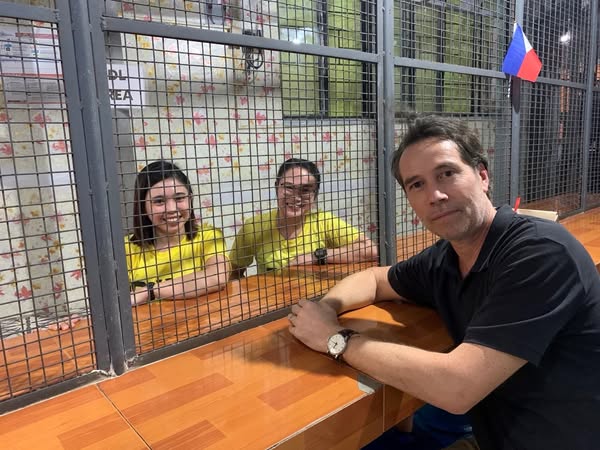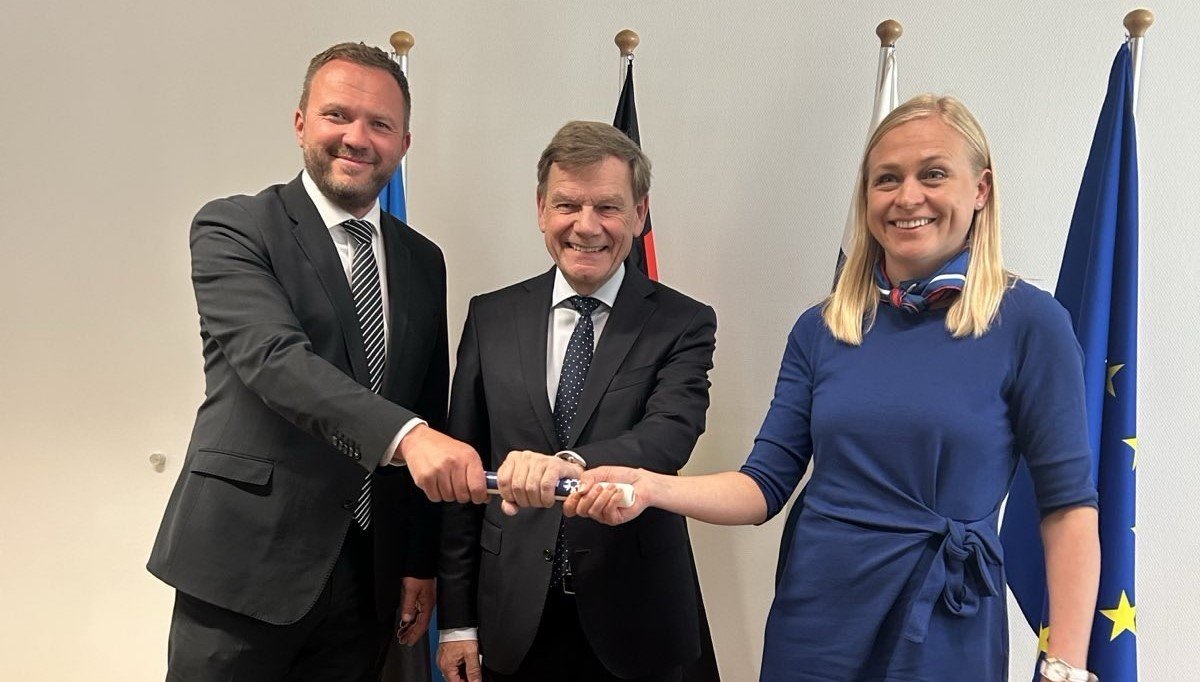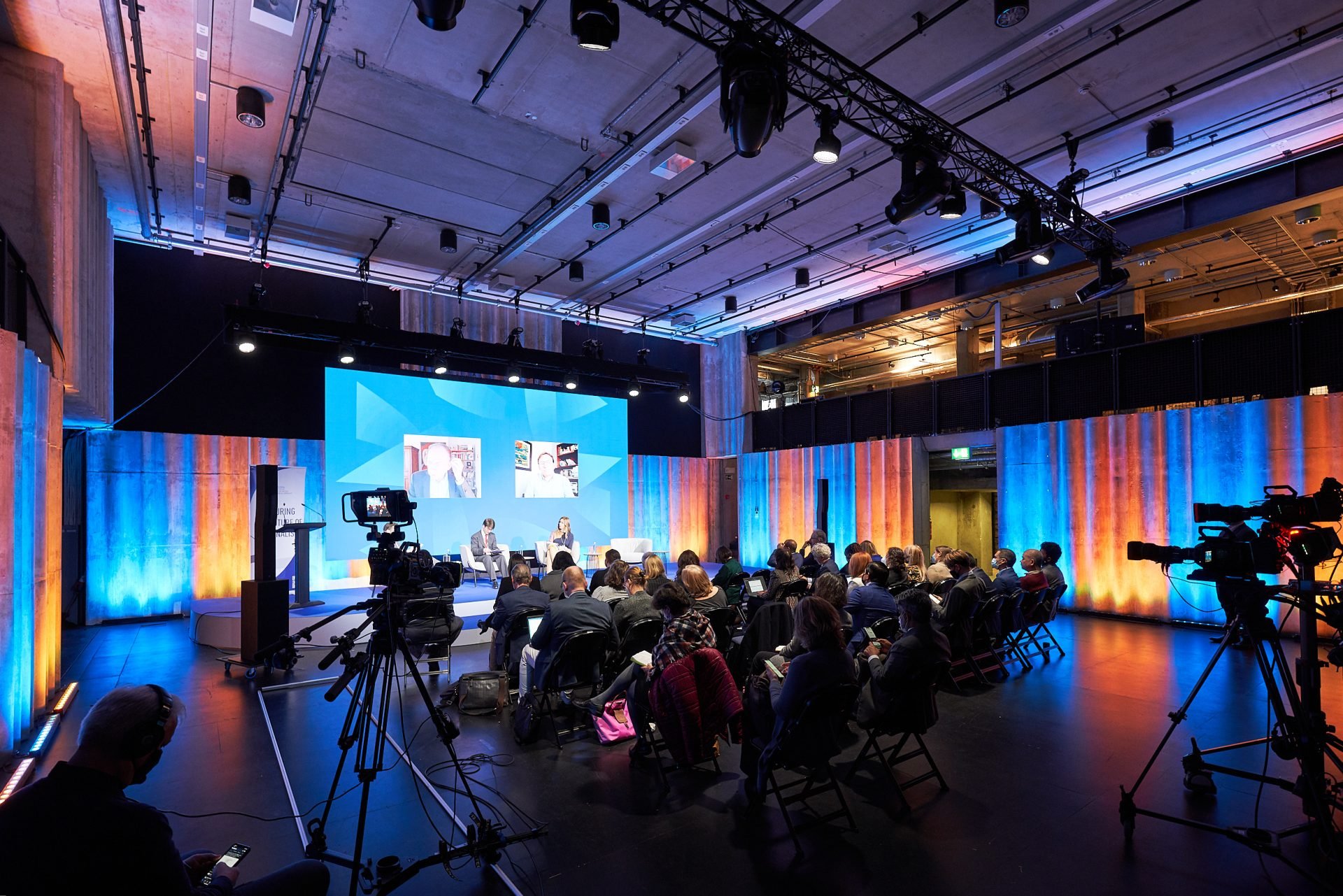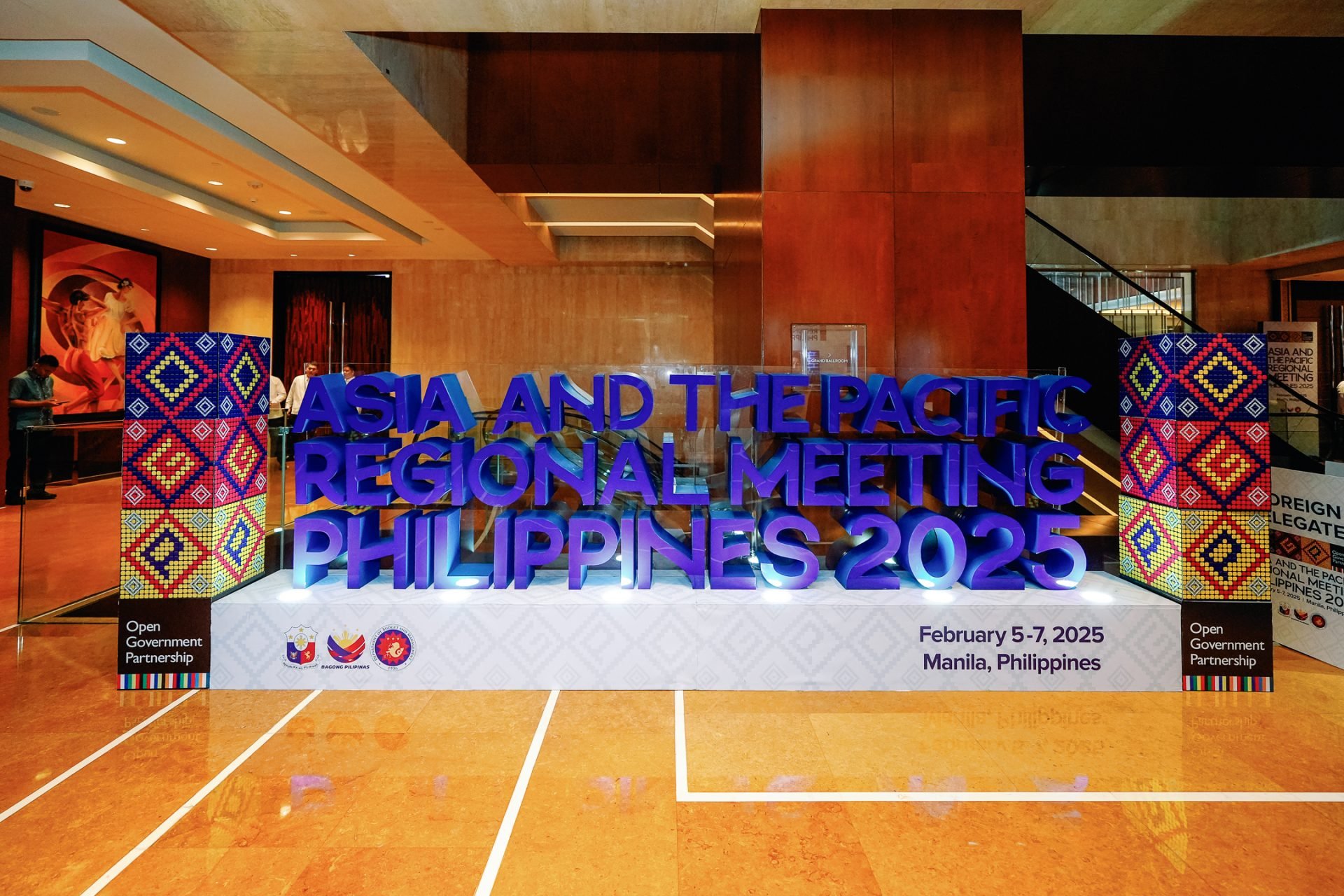
On February 7, 2025, the Media Freedom Coalition co-hosted a side session entitled “Flooding the Zone with Facts: How to Promote Information Integrity While Upholding Media Freedom and Human Rights”. This event, co-hosted by the Open Government Partnership and the Forum on Information and Democracy, was part of the OGP Asia and the Pacific Regional Meeting 2025 in Manila.
This session brought together practitioners and experts from government, media, and civil society to explore how media freedom and quality journalism can highlight facts, how government openness can support the crucial role of journalism and inform the public, and how efforts to tackle misinformation and disinformation can and must protect human rights and freedom of expression, while helping citizens scrutinize the information they encounter.
Opening the session, Pia Friedrich, First Secretary for Political Affairs and Head of Press, German Embassy to the Philippines, emphasised that an “independent and thriving media and its environment is essential for maintaining information integrity, as it ensures the dissemination of accurate and reliable information, thereby supporting the foundations of a democratic society.”
In the session, participants were separated into three groups, led by different moderators with different speakers. Before the breakout discussions began, participants watched two videos from experts in the field.
Dario Milo from the High-Level Panel of Legal Experts on Media Freedom, spoke on the question: What are the dangers to human rights when governments legislate on mis- and disinformation, and how can they be avoided?
If due to your cookie settings the video does not appear, please find it on Vimeo.
Ana Lomtadze from UNESCO Jakarta also provided a video message, answering the question: What is the importance of media literacy, as part of efforts to tackle mis- and disinformation and promote information integrity?
If due to your cookie settings the video does not appear, please find it on Vimeo.
To better understand which group to join, the moderators from each group pitched the groups focus and discussion points. The session participants then divided into groups, to discuss various aspects of mis-and disinformation.
Group 1 focused on the question: How can we tackle misinformation and disinformation while respecting human rights, and what reforms should we consider? This group was moderated by Laura Neuman from the Carter Center and included:
- Lilya Afrikyan: Open Government Agenda Coordinator, Government of Armenia (Prime Minister’s office)
- Laxman Datt Pant: Executive Director of Media Action Nepal, member of the MFC’s Consultative Network
- Pia Friedrich: First Secretary for Political Affairs and Head of Press, German Embassy to the Philippines
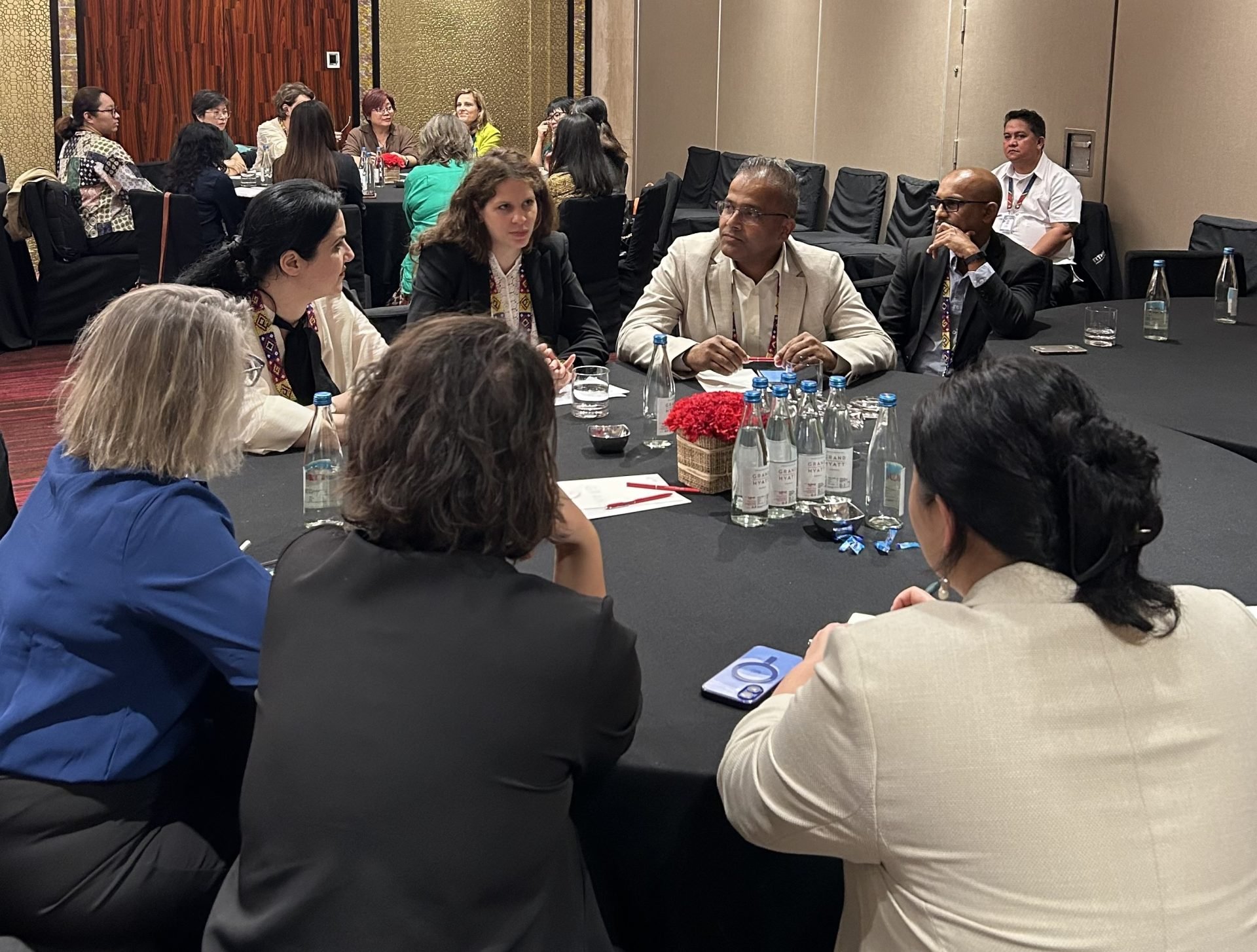
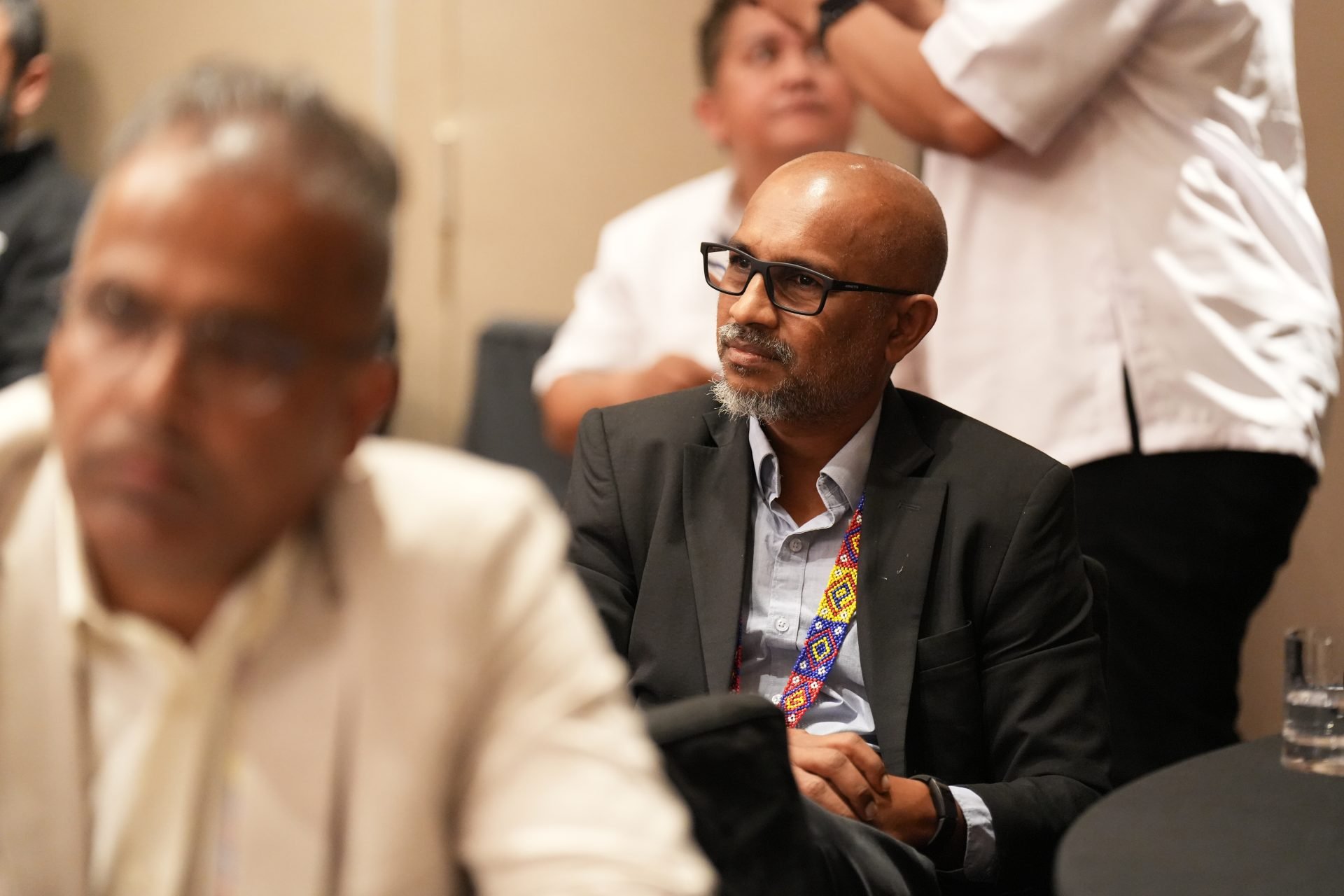
This group discussed the need for regulatory reforms to align with human rights, differentiating between international and national levels. This includes deepening discussions on the international community’s role in supporting and protecting national efforts to uphold human rights amidst misinformation and disinformation.
Laxman Datt Pant emphasized that “Disinformation is defined by the authorities” and went on to explain that regulatory reforms require the involvement of many stakeholders including researchers, civil society, ethics experts, and more.
Group 2 focused on the question: How can we ensure factual information is prominent and reaches citizens? This group was moderated by Jaymie Reyes, Senior Political Officer, Embassy of the Netherlands in the Philippines and included:
- Evi Mariani: Co-founder and Executive Director, Project Multatuli, Indonesia
- Liana Doydoyan: Project Manager, Freedom of Information Centre, Armenia
- Gemma Mendoza: Head of Digital Strategy, Rappler
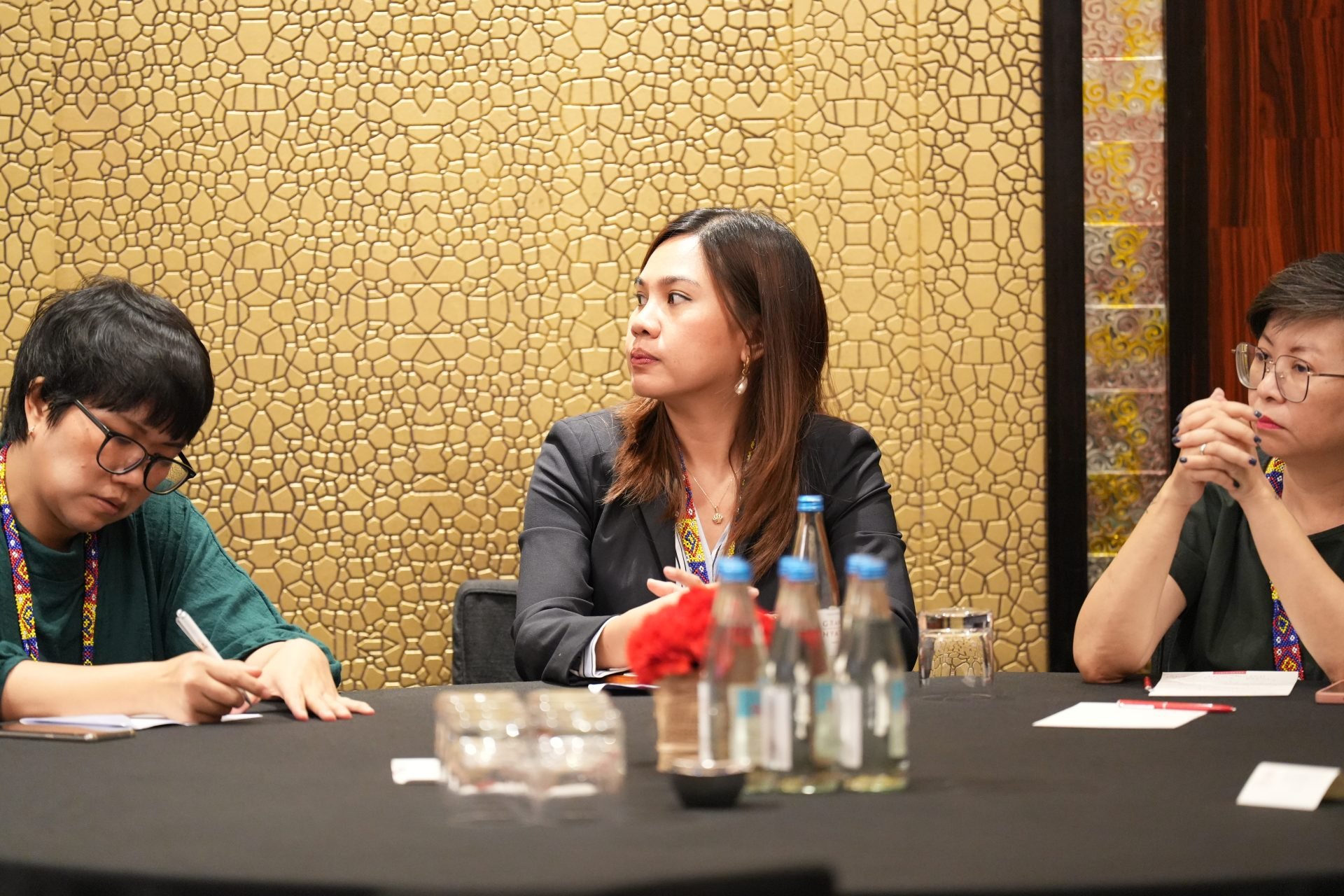
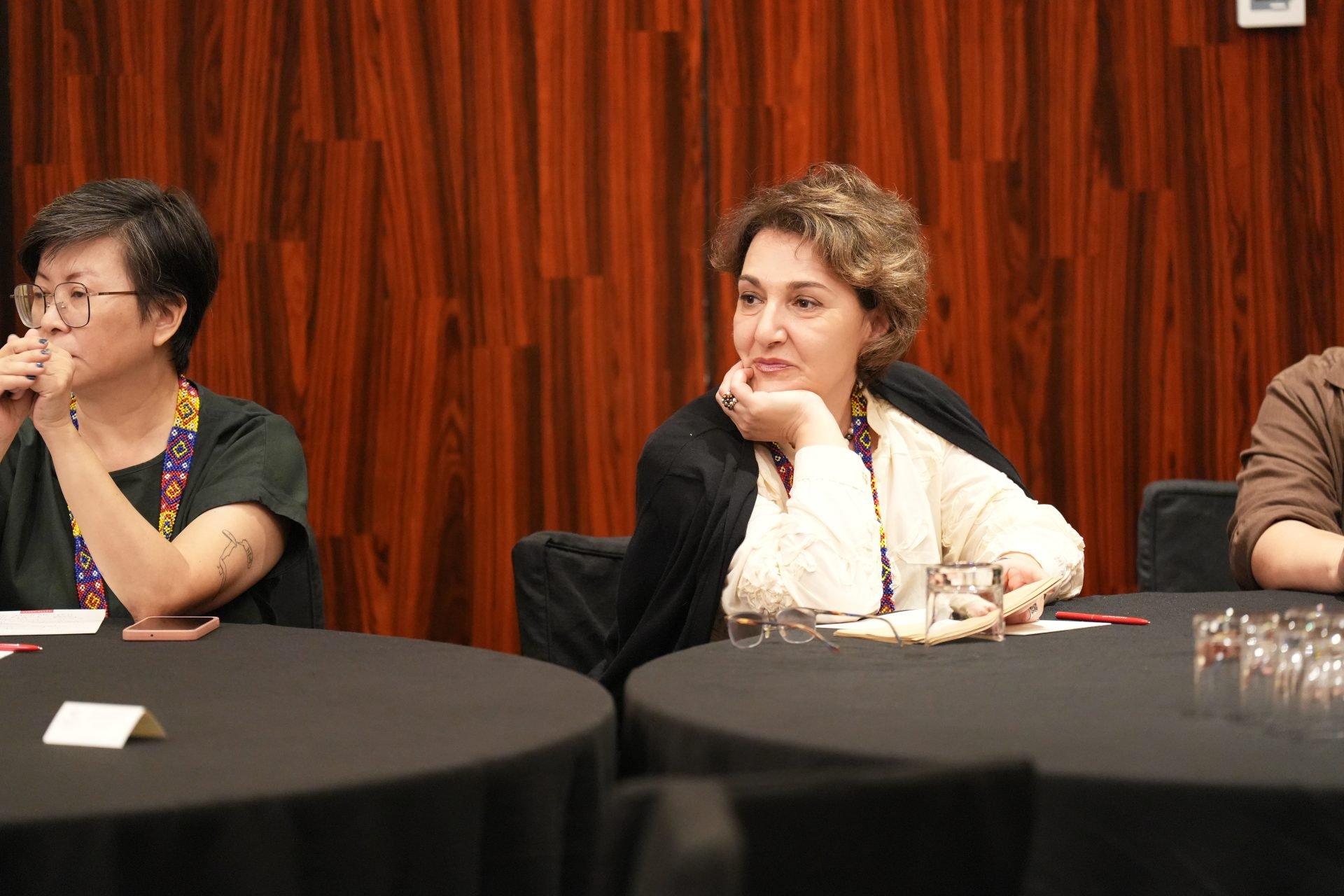
This group explored the complexities of combating mis- and disinformation, emphasizing that the challenge extends beyond fact-checking to controlling the narrative. Participants also discussed the need for journalists and civil society to innovate to deliver factual information on platforms where people consume content, such as social media.
As Jaymie Reyes summarised, the group understood that “the challenge is no longer just about fact checking, it’s about who controls the narrative, who gets heard, and how we break through that noise.”
“It’s not just about correcting falsehoods, but how we craft and deliver the message itself,” she concluded.
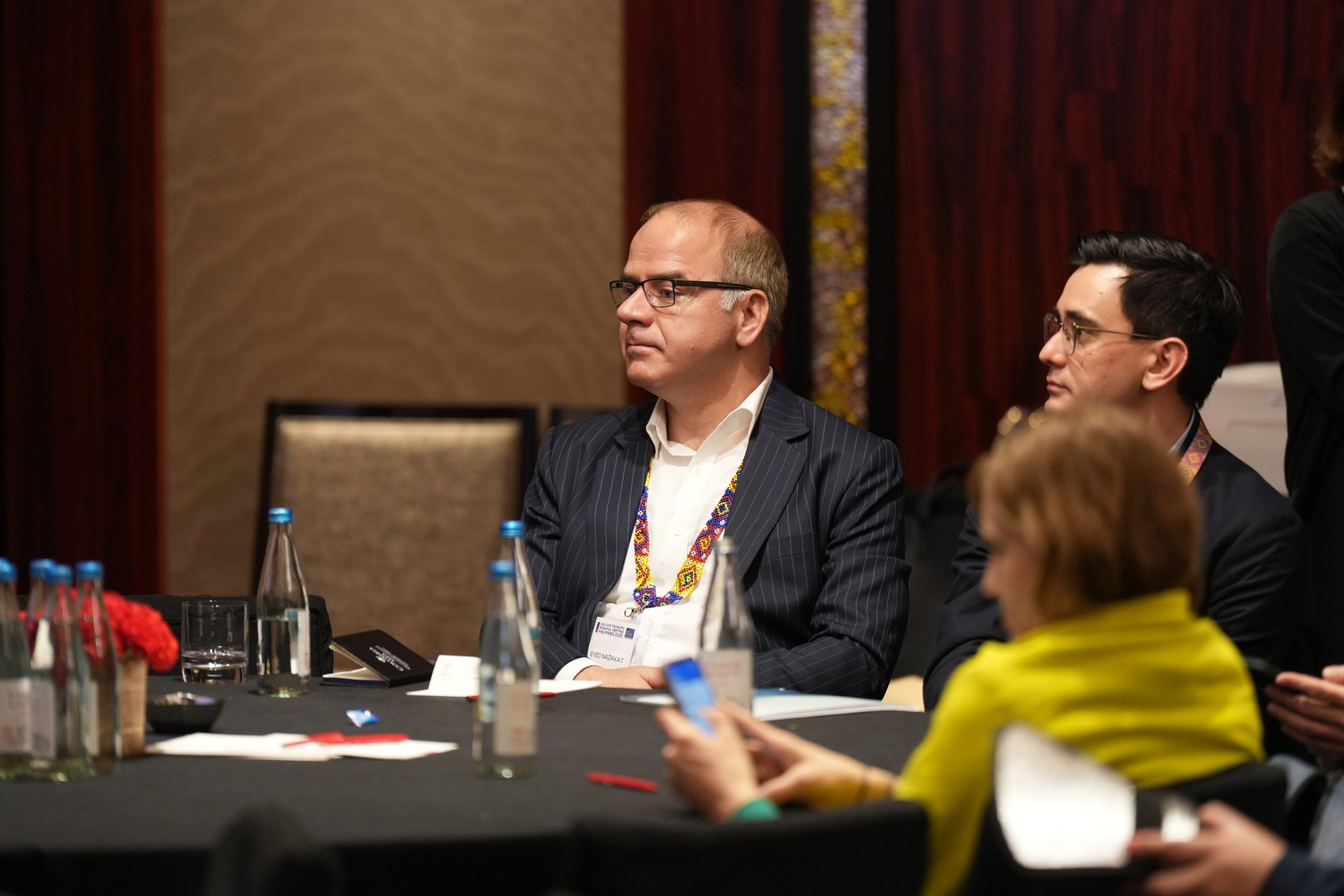
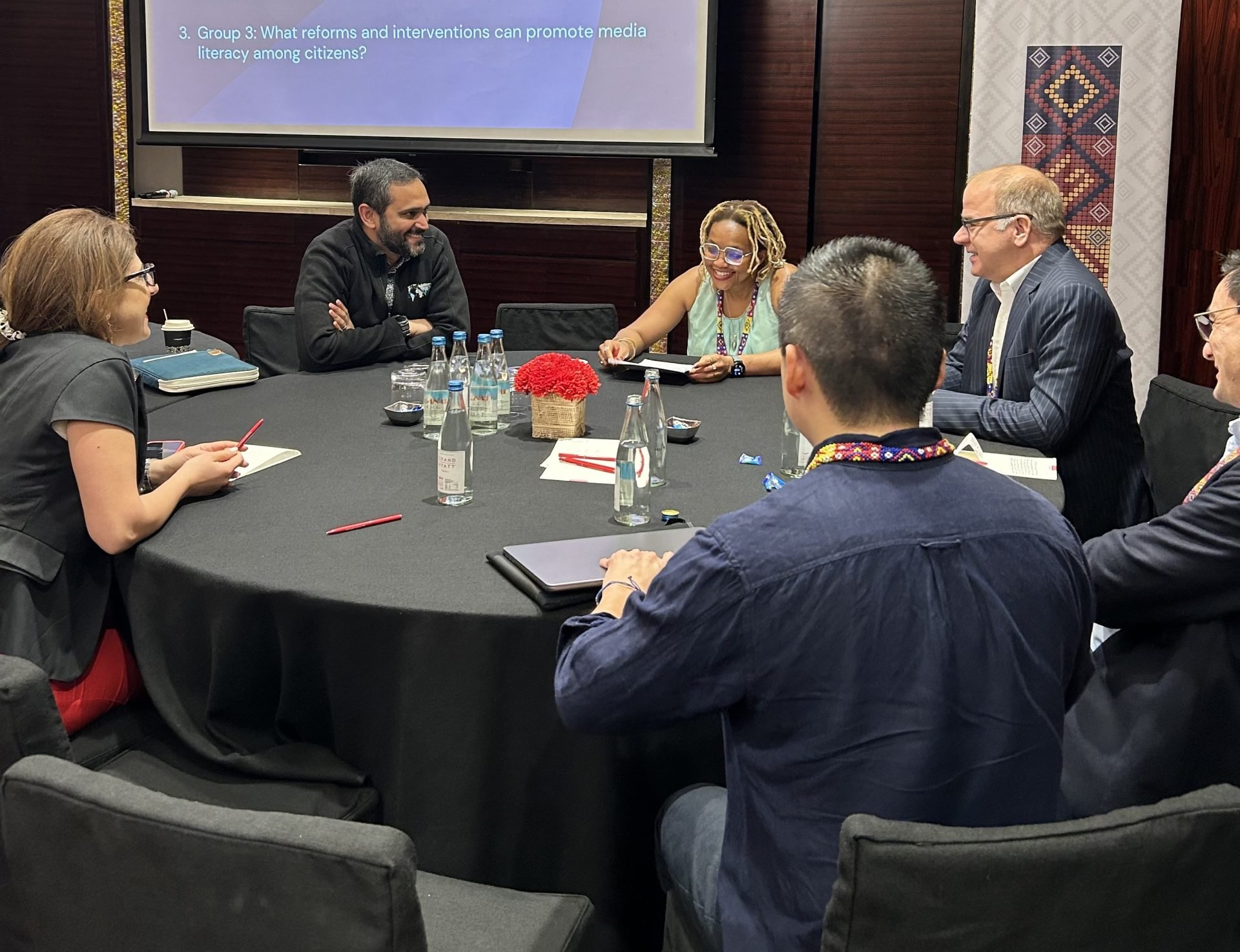
Finally, Group 3 focused on the question: What reforms and interventions can promote media literacy among citizens? This group was led by Zukiswa Kota, Head of Monitoring and Advocacy Program, Public Service Accountability Monitor (PSAM) and included:
- Mark Loong: Director, Strengthening Democracy Taskforce, Australian Department of Home Affairs
- Syed Nazakat: CEO, DataLeads India
This group acknowledged the cost of disinformation and recognized the importance of media literacy, particularly in the context of health and the trust between civil society and the government. The discussion highlighted the need to understand citizens’ media consumption, the role of politics, and the collaboration between governments and civil society.
As Zukiswa Kota concluded, the group also examined the influence of technology and media in creating a society with healthy scepticism and critical thinking, which are essential for democracy.
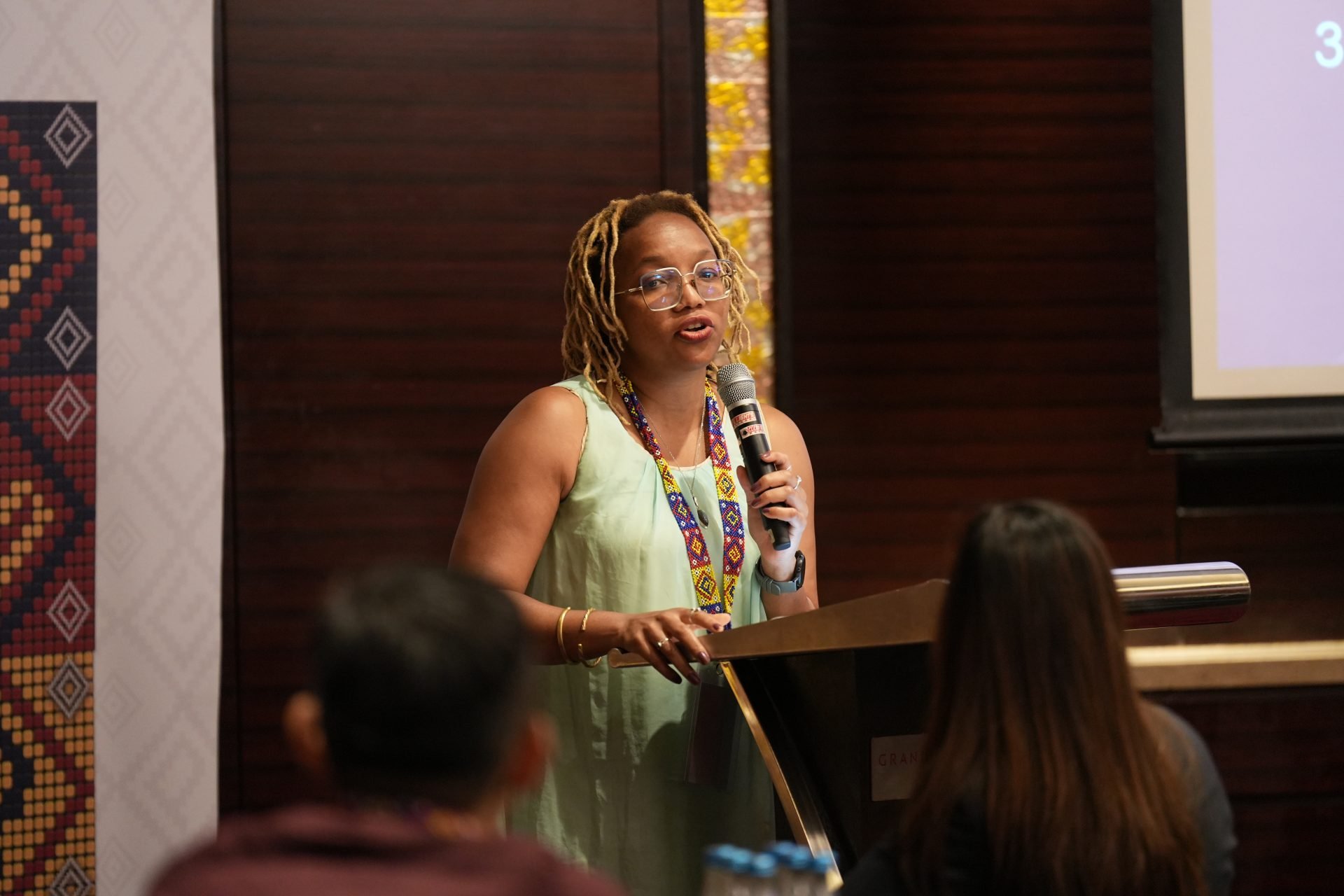
The session was attended by government and civil society representatives, as well as researchers and journalists, from countries including the Philippines, Mongolia, Nepal, the Maldives, Indonesia, Armenia, Thailand, and Sri Lanka. MFC member countries taking part included Australia, Germany and the Netherlands – the latter two represented by their embassies as part of the MFC’s Embassy Network in Manila.
